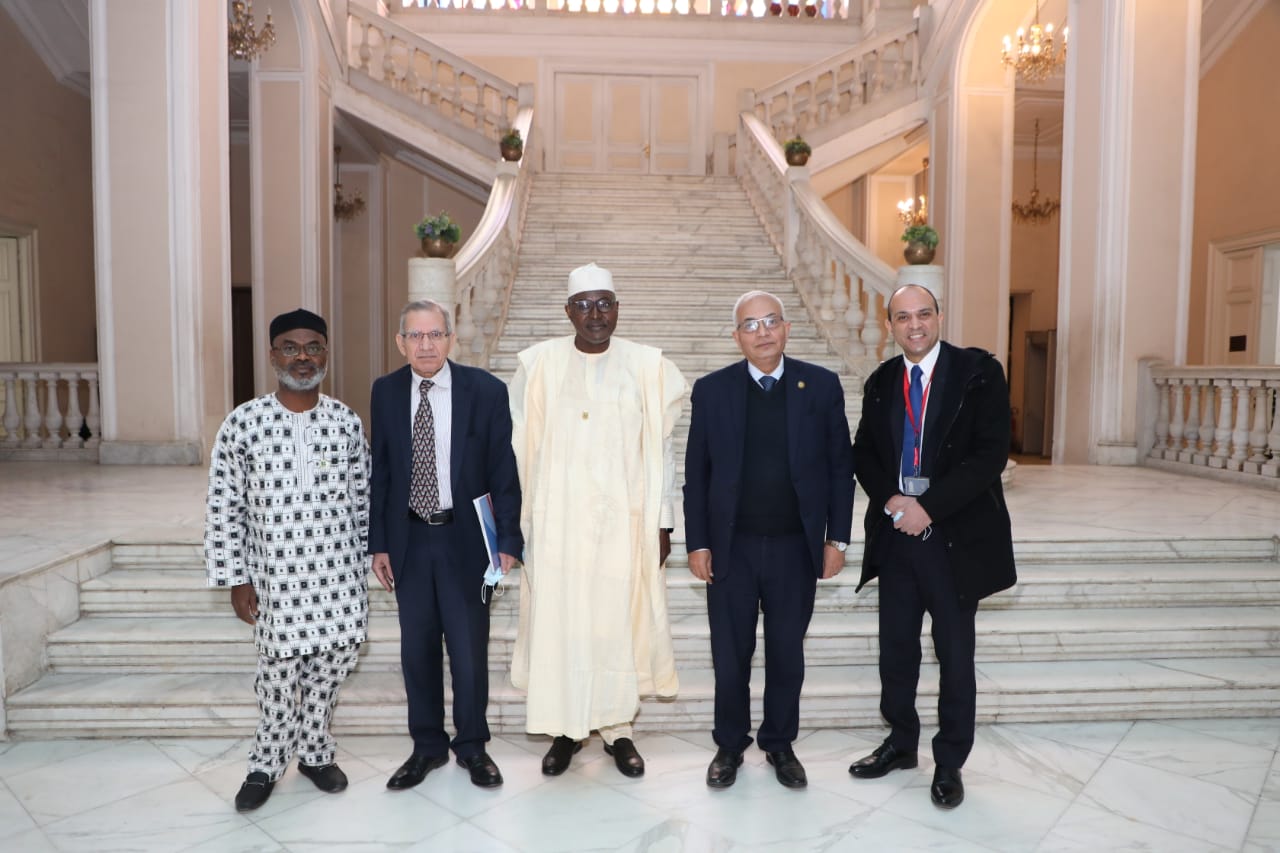"Education" discusses areas of cooperation with Nigeria in the field of pre-university education

The Ministry of Education and Technical Education, at the Ministry’s General Office, held a meeting with Ambassador Rabio Dagari, Director of Technical Cooperation in Africa, at the Nigerian Ministry of Foreign Affairs; To exchange experiences and areas of cooperation between the two countries in the field of pre-university education, and to learn about what Egypt has accomplished in the field of education development.
The meeting was attended by the Ministry of Education and Technical Education, Dr. Muhammad Mujahid, Deputy Minister for Technical Education, Dr. Reda Hegazy, Deputy Minister for Teachers’ Affairs, Dr. Amr Bassila, Head of the Central Administration for the Development of Technical Education and Director of the Applied Technology Schools Unit, and from the Nigerian side, Teodor Sefia, Director of Technical Education Affairs. Expatriates at the Nigerian Ministry of Foreign Affairs, and Bashir Ibrahim, Counselor at the Nigerian Embassy.
At the beginning of the meeting, Dr. Mohamed Mujahid welcomed the attendees, stressing the strong ties between Egypt and Nigeria, and Egypt's constant keenness to develop and strengthen cooperation relations between the two countries in various fields, especially in the educational field.
Dr. Mohamed Megahed stressed that the development of education in Egypt has started since 2017, by building education from the ground up in the kindergarten stage to develop the child’s personality, which is an investment for Egypt in the coming years, and work began on the general framework of the curricula 2.0, which works to build the student’s capabilities And his acquisition of various life skills such as problem solving, creativity, discussion, work and critical thinking, in an attempt to teach the Egyptian child to learn these abilities through curricula that contain these skills.
Dr. Muhammad Mujahid pointed to the state's interests in developing technical education in order to meet the needs of the labor market and raise the efficiency of technical workers, which contributes to strengthening the capabilities of the national economy. improving quality, by establishing an independent body; To ensure quality and accreditation in the fields of technical education (Itqan), adopt curricula based on the merits methodology, and improve teachers’ skills, through the establishment of an academy to train technical education teachers, and the participation of business owners in developing technical education, in addition to changing the stereotyped image of technical education. This strategy depends on the successful and effective partnership between the Ministry of Education and Technical Education, the private sector, and the public business sector.
He explained that the essence of the success of the applied technology schools experience is that they are an integrated educational system, capable of developing technical education in Egypt, so that it keeps pace with the best educational systems in the world. In light of the directives of President Abdel Fattah Al-Sisi, “President of the Republic” the ministry has expanded the establishment of applied technology schools in various economic sectors in different governorates, with the active participation of civil society institutions, bringing the number of these schools to (34).
Dr. Reda Hegazy pointed out that the ministry is implementing a different plan to set the general framework for the curricula through cooperation with many advanced countries in education such as America, Finland, Singapore and others, in cooperation with the Curriculum Development Center, which includes an elite group of experts and specialized professors along with foreign partners to push our students to think. , graduating students who are able to compete globally, stressing that for high school students, sources of knowledge were provided through the implementation of question banks and knowledge banks and the introduction of technology in the educational process, and the provision of tablets to understand the content of the curricula in a new way, noting that to understand the information, the method has changed Assessment to measure the skill of retrieving information through questions that measure the extent of understanding the intended real learning outcomes.
Hegazy explained that the English language is taught from the primary stage, and pointed out that the implementation of the new education system with the new curricula reached the fourth grade of primary this year, and work is underway in building curricula for the rest of the primary grades, adding that teachers are the mainstay for developing the new system 2.0. They were trained on this system, and teacher training is a continuous process all the time, and takes place throughout the year, and a teacher’s guide has been created for each subject, in addition to two television channels (Madrasatna 1 and Our School 2), to help students and teachers understand the scientific material, and provide a number of From digital platforms, direct broadcasting platforms for lessons, educational channels, systems platform for learning management, electronic lessons library (Edmodo), and other digital learning tools, which are provided to our students, and have a broadcast schedule for all curricula for different classes, and all of them are free.
